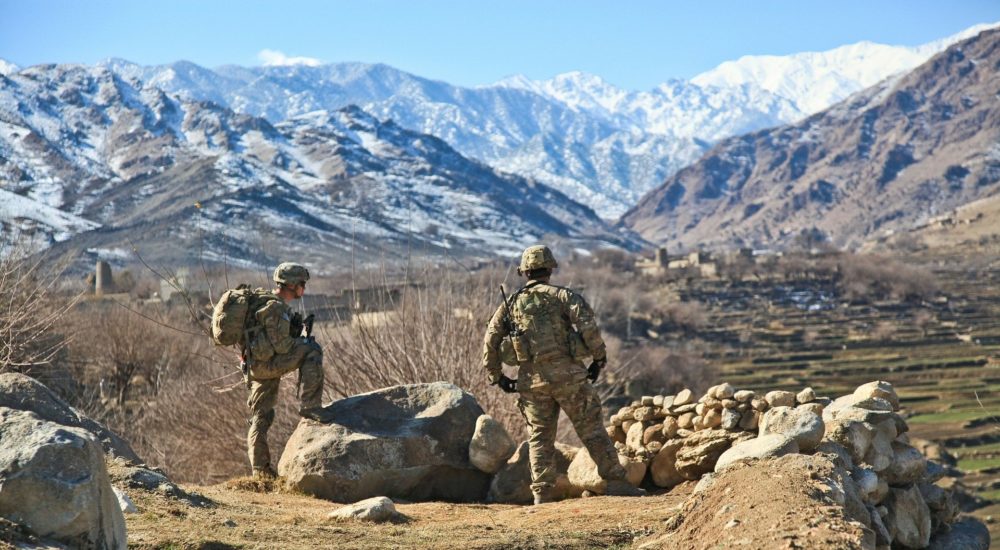The Liberation of Iraq Was and Is Justified
“Someday, I will be one of the last six people on Earth who supports the liberation of Iraq.” –Yours truly, sometime in late 2003
Twenty years ago, an alliance led by the United States began the military action the ended the murderous Ba’athist regime of Saddam Hussein. In the years since, the overemphasis on the issue of “weapons of mass destruction” among both critics and proponents has badly skewed how the war is seen. Those of us who supported the war bear the burden of that error. However, as time has passed, that mistake has metastasized and blocked the view of the numerous other reasons Hussein’s regime had to go, as well as the other benefits that came with Iraq’s liberation.
Why We Went In
These days, it is widely assumed that the only reason the Coalition of the Willing took military action was Iraq’s alleged possession of “weapons of mass destruction” (chemical, biological or nuclear weapons). When said weapons created later than 1991 were not found, the war’s critics seized upon that mistake and made it the symbol for the entire war (“Bush lied; people died”). Meanwhile, many of the war’s defenders chose to check out of the debate or wait until a decent interval had passed to announce a change of heart. What has been forgotten in all of this was that the Ba’athist regime gave plenty of other reasons for its extinction.
First and foremost, Saddam’s regime was trying to build ties to al-Qaeda (New Yorker), despite (or likely because of) the terrorists’ 9/11/01 attack against us. As a corollary to that, the regime was Islamicizing itself to the point where its henchmen transitioned seamlessly to al Qaeda in Iraq and then ISIS (New York Times).
“On the eve of the American invasion in 2003, Iraq was a new country,” writes Amatzia Baram in his book “Saddam Husayn and Islam, 1968-2003.” It was “no longer a moderately religious society with a large number of secular individuals and a modernizing secular ruling elite, but a country on the way to deep religiosity.”
Mr. Hussein did not hold down religious militancy and sectarianism, but incubated them and prepared the ground for an armed Salafist movement. The tribes, criminal networks, militias and distributed weapons stores that the regime used to secure support and head off a new revolt laid the material basis for a decentralized insurgency.
The Islamic State was not created by removing Saddam Hussein’s regime; it is the afterlife of that regime.
Now imagine an ISIS-type regime running all of Iraq, and with a $10 million North Korean missile assembly line (NYT) – which Pyongyang never delivered only because of “too much American scrutiny” in the run-up to the liberation – and posthumously subsidizing Palestinian suicide bombers (ABC). I humbly submit that the Iraq we have now, for all its problems, is far less unstable and destabilizing by comparison.
Other Benefits of the Ba’athist Exit
An additional mistake critics of the Iraq war make is to assume that Iraq was a quiet and peaceful place before the invasion. That utter delusion ignores the quarter million Iraqis killed by Hussein (Scotsman) – not counting the tens of thousands sacrificed as cannon-fodder in the Iran-Iraq War. Ba’athist Iraq was so far from quiet or stable that it was dubbed “The Republic of Fear” (Newsweek).
Rajiv Chandrasekaran pulls no punches in criticizing American performance during the post-war occupation (and not without merit) … and yet even he acknowledges reality in his Washington Post op-ed (emphasis added).
After years of bloodshed, though, the country is now in a far different place. Aside from having a far closer relationship with neighboring Iran than the United States, Iraq is more peaceful and prosperous than at any time in the past two generations. It is a democracy, albeit a fragile one, which is a rarity in the Arab world. Baghdad is thriving. Oil exports are flowing. Foreign investors are betting on the country’s growth. All of this has occurred in spite of the mistakes made by American civilians during the U.S. occupation.
Meanwhile, there were second-order benefits that have been swept down the memory hole. Within months of Saddam being knocked out of power, Libya’s regime openly renounced its WMD programs (Arms Control Association). Even the mullahcracy of Iran hit pause on its own nuclear-weapons development (DNI). Call those coincidences if you like; the rest of us know better.
The Perfect Can’t Be the Enemy of the Good
I would recommend Chandrasekaran’s column regardless of the date on the calendar. It rightly points out the errors that came with our efforts to democratize Iraq after the war, although I think de-Ba’athification was more necessary than he does. However, he manages to separate the removal of the regime (about which he does not comment) with the decisions made afterward, which were far from perfect. America and her allies made mistakes after both World Wars and the Cold War. None of those mistakes invalidated the need to fight those wars in the first place.
Contrary to the wishes of the Trump-Biden consensus, the debate over Iraq is far from settled. To even my surprise, the “last six” of us willing to defend the war are in fact well over 100 million (Ipsos), including a quarter of my own party.
No matter how many or how few agree, I still hold that liberating Iraq from Ba’athism made Iraq, America, and the democratic world safer.


